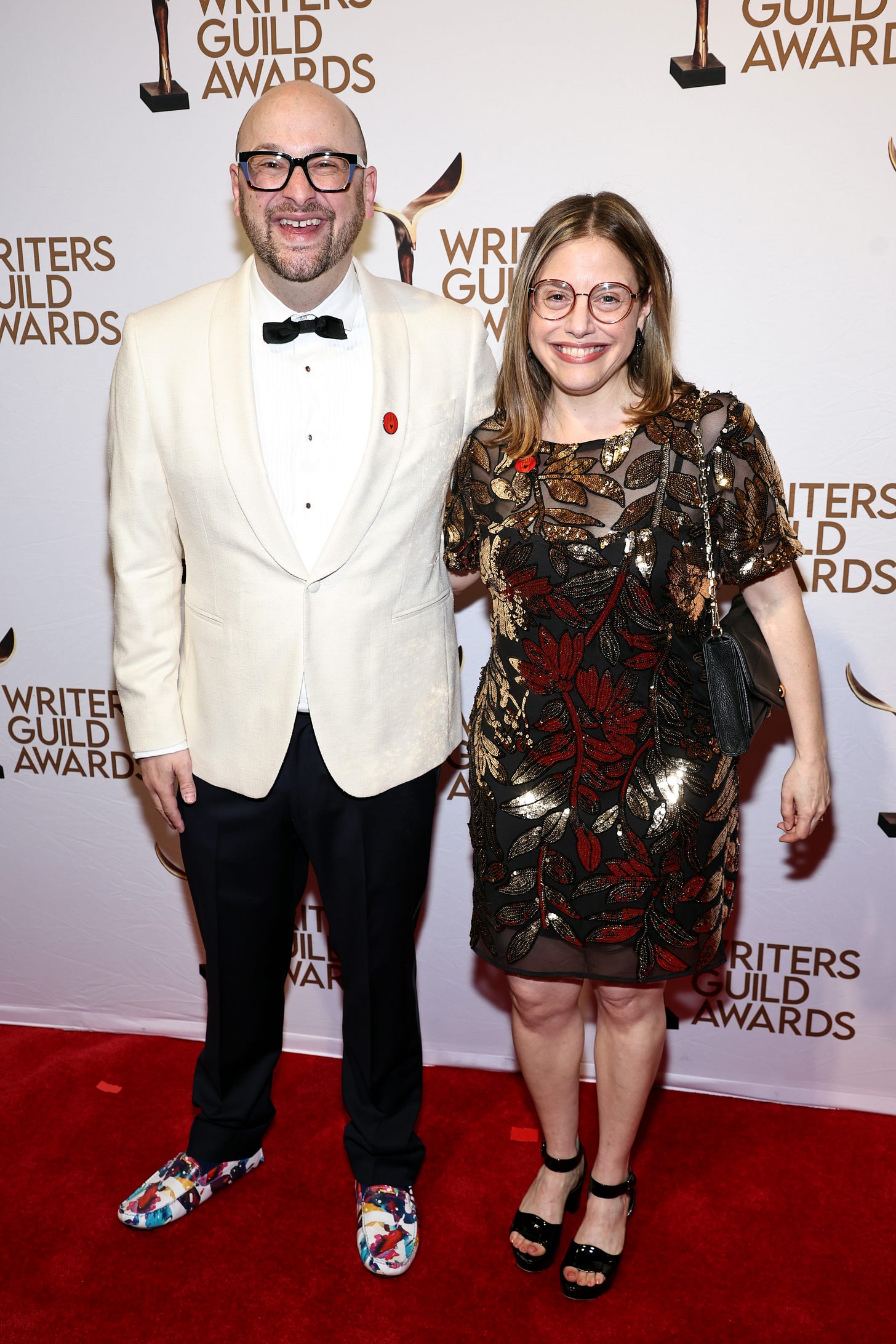Why Disillusionment With the Publishing Industry Isn't Stopping Maris Kreizman From Starting a Book-Centric Newsletter
The Maris Review makes the jump from podcast to newsletter-land.
The Present Age is reader-supported. Please consider subscribing to the free or paid versions. Thanks!
Today, for another edition of You Know, where I introduce you to someone who is starting a newsletter who you should know, I am joined by the insightful Maris Kreizman. Maris is the former host of the beloved podcast The Maris Review, the new head of the recently relaunched newsletter of the same name, and a celebrated cultural critic who bridges the worlds of literature and pop culture. With her extensive experience in book publishing and her sharp commentary on contemporary media, Maris brings a unique perspective to the world.
Can you share a bit about your journey from working in the book publishing industry to cultural criticism, podcasting, and now newslettering? What are some of the pivotal moments that sort of shaped your career?
Yeah, in my About Me section on my Substack, it starts, takes a long drag on a cigarette because I feel like I've really seen it all. I started out wanting to be a book editor and I did that through most of my twenties. And then I was laid off and had to find work that was more in and around books. So, I worked at barnesandnoble.com and Kickstarter and Book of the Month.
And while I was doing all of that stuff, I sort of realized, as we all did back then, that it's nice to have a personal brand. It really is. And it's nice to have one that is not attached to your profession or the way you earn money. And I began to realize that I loved writing as much as editing. So I do some book criticism and some TV criticism and I started freelancing. And I started my podcast for Lit Hub because I was getting frustrated that I couldn't pitch conversations or profiles with authors anymore at most publications now that aren't paying that much attention to books.

I figured that was a way to talk to the people I wanted to talk to on my own terms. And this will be kind of a continuation of that. It won't be audio to start, but I get to talk about what I want and when I want to, and that's so freeing.
You've been really vocal about the intersection of literature and the broader pop culture. How do you think that relationship has evolved with the advent of digital media and social platforms? You know, “BookTok” and such.
Yeah, I have to admit that I am a lurker on BookTok, [but] have not participated. I started out on Tumblr, and that was really my main platform. And since I started out on Tumblr, I think social media in general has gotten more toxic and digital media has gone from an industry that was booming to one that I hope is still around tomorrow. So it becomes really important to have a way to talk about books that doesn't rely all the time on those platforms. … There are so few platforms now to talk about books other than BookTok. BookTok has become so big that you might start thinking those kinds of books are the only books out there. And there is a vast world and it would be so wonderful if there were a platform for all of the kinds of books that I enjoy.
Yes. Which brings me to my next question. With so many new books being published every year, how do you decide which titles and authors you'll engage with? Are there any particular trends that excite you?
Parker, this one keeps me up at night and makes my apartment a wreck. It's really hard. There are some books that I know are coming and they're written by someone I already admire and that's really exciting. But getting a first novel from someone I haven't heard of is so exciting and I don't have time to read them all. And sometimes it's really just luck of the draw. I pick one and then I'm in it. And that's why book criticism is so important that we need as many people as we can to be picking out those debut novels and small press books and telling people about them. Because I'm not looking at trends.
I'm just looking at whatever looks interesting to me, which is specific.
Finally, tell me about the Maris Review, the newsletter and how does it differ from your podcast (RIP) of the same name and what can readers expect format wise, frequency, et cetera.
I think my main challenge with my Substack is going to be that I have become so disillusioned with the publishing industry and the digital media industry. And I just have to always try to keep my love of books and the excitement around books away from that.
And so the Maris Review will be a place where you can see what I'm reading, see what I'm going to read next, hear my thoughts on the latest scandal — scandal's a big word for the book world, but kerfuffle, perhaps. I hope to talk about adaptations because that's such a big way that people find their way into books. I hope to do author interviews and perhaps audio once again.I'm so excited to figure out what my own constraints are going to be. I have so much freedom now and I'm getting ready to kind of wheedle it down.
That’s it for me today. Thanks again for reading!








I love this. Maris is a beacon! (And so are you, Parker!) What a great interview!
This warmed my heart when it showed up in my inbox.